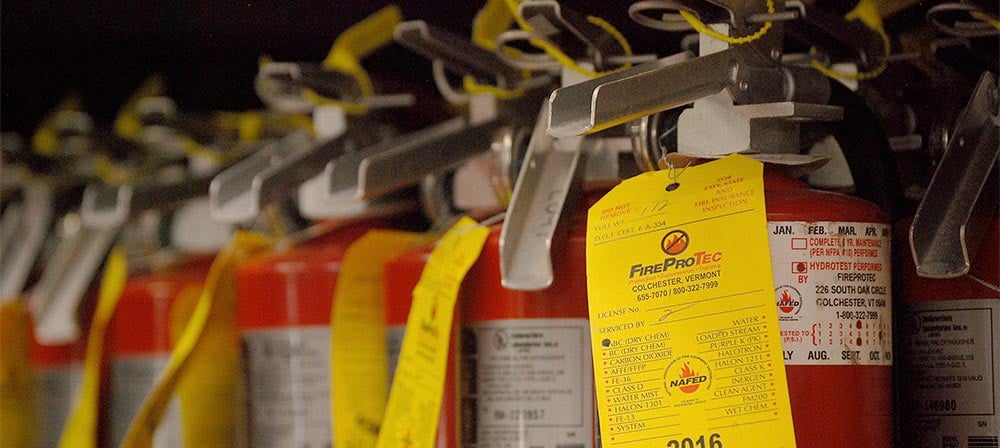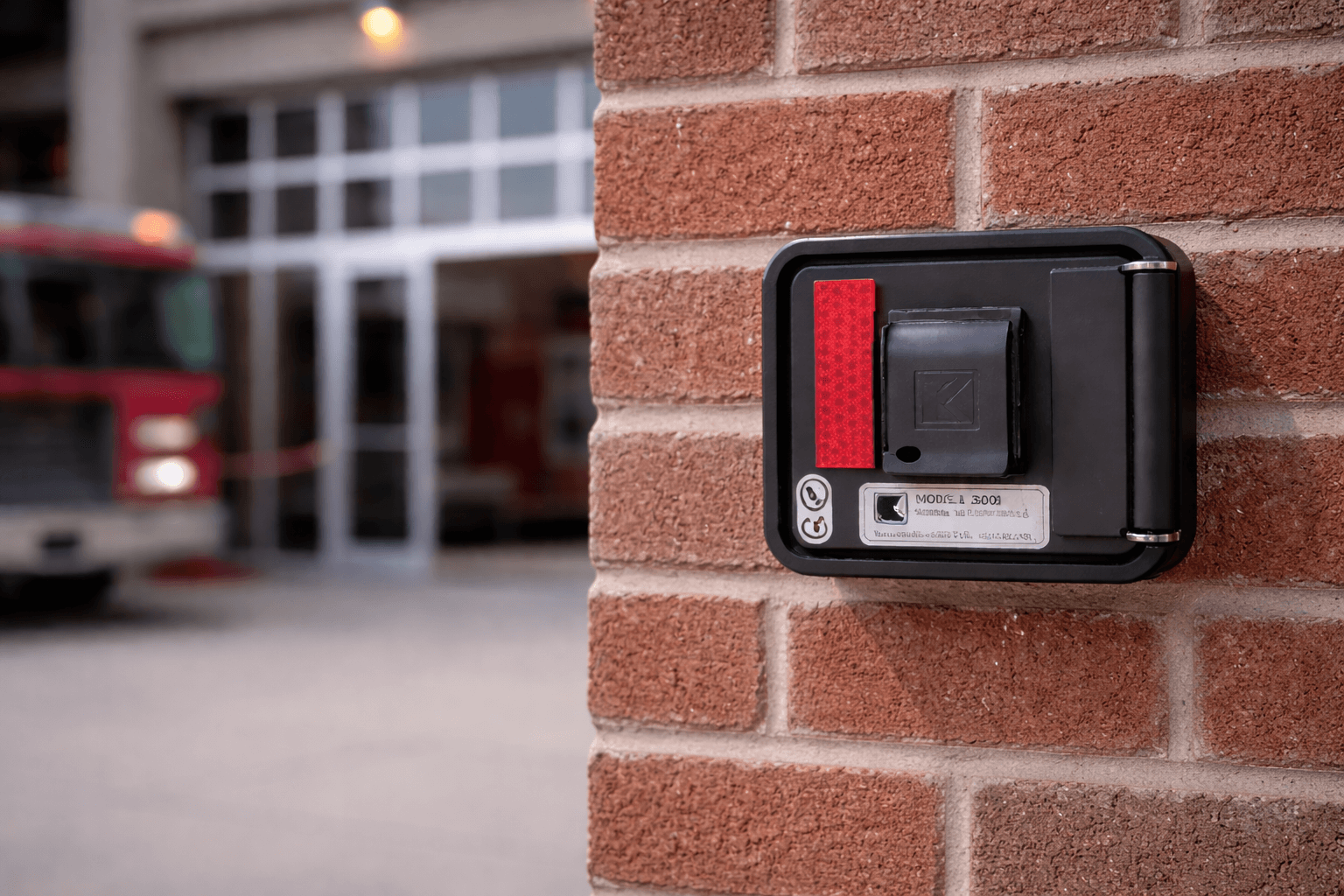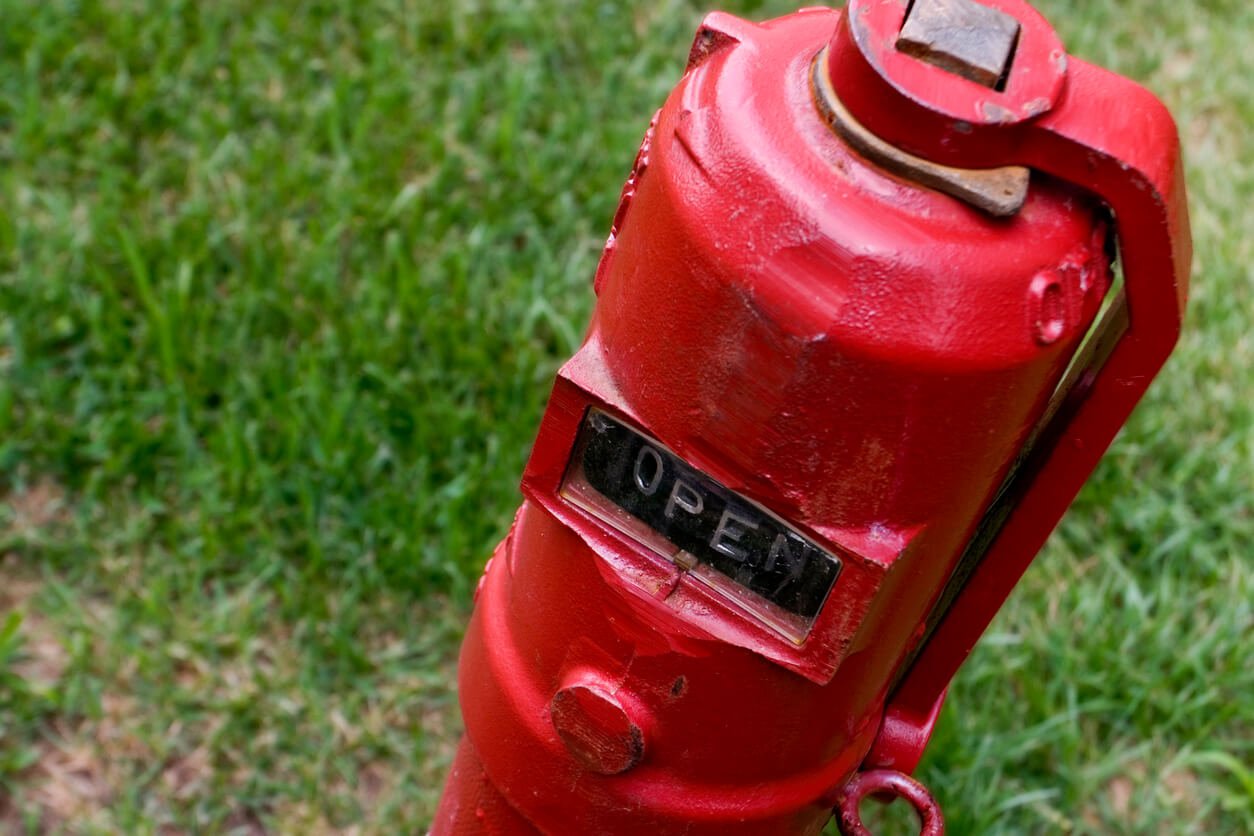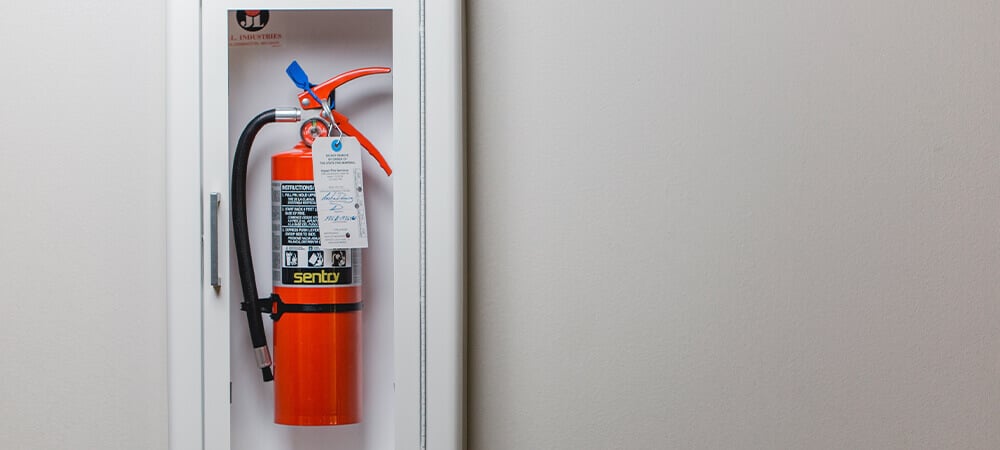Do you have a fire extinguisher in your home? More importantly, do you know where your fire extinguisher is?
With so much combustible material in the average house, fires can rage out of control in a matter of two to three minutes. Having easily accessible portable fire extinguishers is the best way to stop the spread of an incipient stage fire—a fire that has just broken out.
According to the National Fire Protection Association (NFPA), most house fires — about 56% — remain confined to their object of origin. But the fires that are allowed to spread are deadly and dangerous. When fires spread beyond the room where they start, they cause four out of five of all home fire deaths and almost half of all home fire injuries. Easy access to a fire extinguisher helps prevent fires from spreading while protecting your home and your family.
Below, we list the five most important places to keep a fire extinguisher in your home. But first, here are some general rules you should use when placing a fire extinguisher in any room of your house:
- Make sure everyone in your house knows where the extinguishers are.
- Keep them visible at all times with the label facing outward.
- Check frequently that the extinguishers aren’t blocked and are easily accessible.
- Consider keeping an inventory of your home’s fire extinguishers to note when they were last inspected or serviced. Make sure they’re always in working order.
Here are the five essential places to keep a fire extinguisher in your home:
1. The Kitchen
Kitchens are one of the most common places to find a fire extinguisher in any home, and it’s easy to see why. Cooking equipment continues to be the leading cause of reported home structure fires and fire injuries. Between 2010 and 2014, cooking equipment was involved in 46% of home structure fires, 19% of home fire deaths, and 44% of home fire injuries.
The kitchen fire extinguisher should be within 30 feet of the stove so it can be accessed quickly in an emergency. But it shouldn't be installed in the immediate vicinity of the stove, where smoke and flames could block access. If you have a small kitchen, you may need to mount the kitchen extinguisher on a wall in the adjacent room—as long as it’s easily accessible from the kitchen.
2. Near Sources of Heat
One fifth of all home fires are caused by heating equipment. Whether it’s your chimney and fireplace, a permanently installed room heater, or a pellet stove, be sure you know where the closest extinguisher is to each piece of heating equipment in your home. Again, as with cooking equipment, don’t keep the extinguisher right next to the source of heat, but a safe distance away.
3. Each floor of your home
Keep at least one fire extinguisher on every floor of your home, including the basement and attic, if you have them. Fires can start anywhere at any time in your home. Whether it’s faulty wiring or an unattended candle, fires can start in unexpected locations. Prevent them from spreading by keeping an extinguisher on every floor. A quick response is essential to successfully combating an incipient stage fire.
4. The Garage
Garages, workshops, and sheds are typically full of combustible materials, especially things like gas canisters, oils, and cleaning products. Especially if you work with tools in your garage or shop, be sure to keep a fire extinguisher close by to prevent any sparks from leading to serious fires. Don’t forget to check that your garage extinguisher is labeled for flammable liquids!
5. The Bedrooms
The majority of fires happen at night, so every bedroom in your house should have easy access to a fire extinguisher—even children’s rooms. There is no age limit on using a fire extinguisher, and even kids can be trained on how to operate one safely and effectively. Even if you don’t expect your children to use an extinguisher themselves, it’s nevertheless important to have an extinguisher easily accessible.
It’s better to be well-prepared than to be running around looking for an extinguisher in case of a fire.







